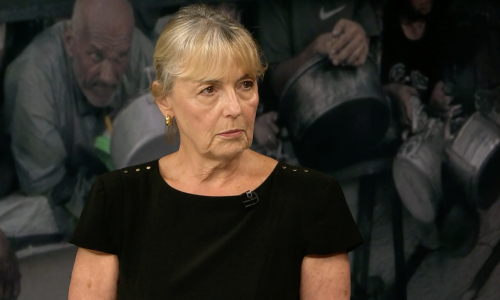Slovenian Foreign Minister Karl Erjavec has not threatened to hamper Croatia's admission to the European Union, scheduled for 1 July, if no solution is found to the issue of the now-defunct Ljubljanska Banka in the meantime, but he expresses his concern over a possibility of Croatia not joining the Union on 1 July due to the ongoing political situation in Slovenia, the Slovenian Embassy in Zagreb said in a statement on Saturday in an attempt to clarify Erjavec's statement that was met with criticism from the Croatians.
In response to media reports in Croatia and reactions from some of the local politicians who perceived Erjavec's remarks as a threat, the embassy highlights in the press release that in his recent statement to the national television the Slovenian minister stressed that he would do his best to help efforts aimed at finding the solution of the Ljubljanska Banka issue in Croatia and also to help efforts to ratify Croatia's EU accession treaty in the Slovenian parliament as soon as possible, given that in the event of missing a target date of 1 July, Croatia might never join the Union.
"This target date will be questionable in the event that Slovenia calls early elections and dissolves the parliament, which would make the ratification impossible, while ratification is a prerequisite for the enlargement," according to the embassy.
The embassy points to some other ambiguities in such scenario as it is unclear "what legal, political and financial consequences might follow both for the EU and Croatia."
The press release does not rule out a possibility that this will require "elaborating a completely new accession treaty for Croatia".
Therefore, the embassy insists that Erjavec expressed his concern over the political developments in Slovenia and the implications for foreign affairs.
"The minister spoke about his huge wish to successfully close the issue of the Ljubljanska Banka in compliance with international treaties and agreements" that should guide the negotiations and help find agreement on the Ljubljanska Banka issue rather than having "Croatian courts unilaterally judging the matter", according to the embassy that recalls that Ljubljana insists that Zagreb withdraw its power of attorney for lawsuits before Croatian courts.
During her visit to Brussels on 14 January when she met for talks with several European commissioners, Croatian Foreign Minister Vesna Pusic said that the only remaining potential difficulty in completing the process of ratifying Croatia's Treaty of Accession with the European Union was Ljubljanska Banka.
She admitted then that that problem might complicate the ratification of the treaty in Ljubljana, but that it was possible that the issue might be solved by the end of January.
The only remaining outstanding issue, a potential difficulty, is the issue of the Ljubljanska Banka, namely the ratification of the treaty in Slovenia. We have been intensively working on it since this past spring, we have so far had five different initiatives about possible solutions. Our financial experts will meet again on 22 January, and we will see how it will be settled," the Croatian minister said. In the meantime, the fifth meeting of France Arhar and Zdravko Rogic, the experts appointed by the governments of Slovenia and Croatia to propose a solution to their dispute over the now defunct Slovenian bank Ljubljanska Banka, has been postponed for a week.
Asked whether the experts Rogic and Arhar might find a solution at their next meeting, Pusic answered in the affirmative in Brussels.
"I think that it is possible to find a solution, but I cannot prejudge the outcome, as it does not depend only on the financial experts but also on the willingness of the two governments to accept the proposals they recommend. If both governments accept the solution, Croatia is ready to withdraw the power of attorney in lawsuits against Ljubljanska Banka," she said then in Brussels.

































